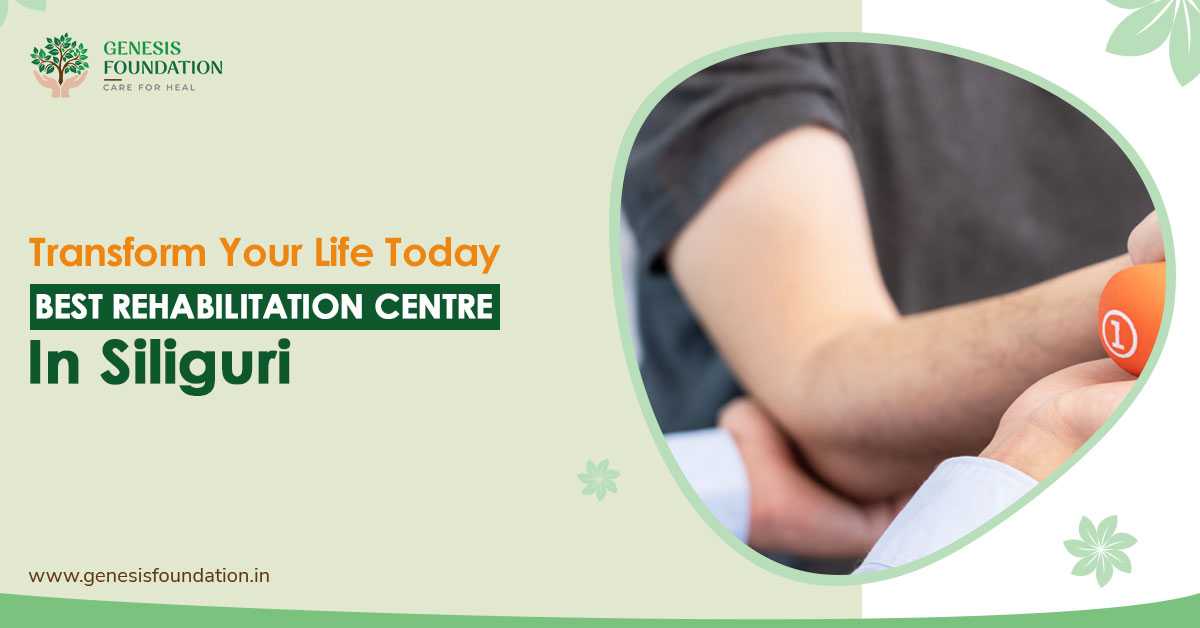You must know that one size never fits all and every patient has a unique trajectory of their addiction recovery journey. Addiction is a complex condition that is way more than just intense cravings. This condition can interfere with the psychological, neurological, and physical condition while hampering personal and professional lives. Your path towards recovery to fight addiction can be quite difficult but you can effectively manage all the complications faced during all the stages by joining a Siliguri rehab center.
The rehabilitation center always prioritizes the unique health needs of patients so that personalized support can be provided during recovery. Herein, the rehab center also has experienced psychologists who can offer you effective counseling and break down the stages of addiction recovery so that you can take a step toward long-term sobriety. You must know that everyone can overcome addiction if proper professional assistance and treatment programs are implemented.
Various Pathways To A Successful Addiction Recovery
1. Realization and Acceptance Stage
During the first step of addiction recovery, you are not ready to join a treatment program. This stage is all about realizing that addiction is causing significant problems in your life. You may feel that this is extremely challenging but this is the main stage when you must accept the addiction problem and seek help.
Seeking professional help and necessary support plays a major role during addiction recovery. Looking at the negative impact of addiction and moving towards withdrawal is the main aim of this stage.
2. Detoxification Stage
Before starting the recovery treatment, physical cleaning is highly important. The second pathway towards recovery is all about detoxification where your body is cleansed to remove all the addictive substances.
You need proper medical assistance during this process since the experienced withdrawal symptoms can be quite dangerous and unmanageable. In this stage, emotional support is also provided by the healthcare providers to help you overcome the withdrawal symptoms such as anxiety, cravings, and mood swings.
3. Rehabilitation Stage
You need to visit the best rehab center in Siliguri to facilitate the rehabilitation stage of addiction recovery. In this stage, you get the required therapy and personalized treatment from support groups and psychologists.
Starting from counseling sessions and group therapy to support and education, you will get all the necessary assistance for a successful recovery. Herein, the underlying causes of addiction will be detected so that you get to learn effective coping mechanisms to control the cravings towards addictive substances.
4. Action Stage
The action stage of recovery is most important since it takes you towards the pathway of change, where you adopt healthy lifestyle choices to stay away from addictive substances.
In this stage, you won’t stick to the destructive behaviours but will start walking on the right path for an effective recovery. Herein, you gain confidence and motivation to adopt self-understanding and self-care strategies to improve your physical and mental well-being.
5. Maintaining Sobriety
Maintenance is the last pathway of addiction recovery which is dedicated to preventing the likelihood of recovery relapse. In this stage, you will get ongoing support to maintain sobriety even when the rehabilitation treatment is completed.
During the routine follow-up appointments, the healthcare providers will encourage you to develop a healthy lifestyle that includes a balanced diet, regular exercise, finding new hobbies, and building new networks. Based on the severity of the addiction, this stage can last for a few weeks to several years.
You must know that even if you have completed all the stages of addiction recovery, it is still important to follow the aftercare plan recommended by the Siliguri rehab center. Herein, you can keep practicing the things you have learned during the treatment or attend support groups and therapy sessions for a healthy and long-lasting journey toward sobriety.




